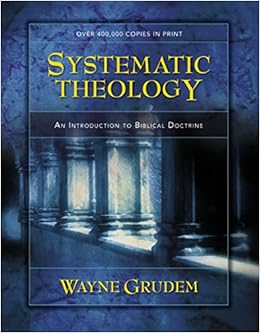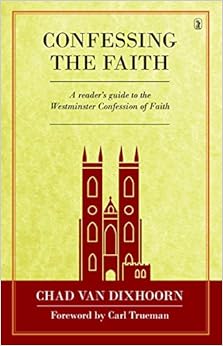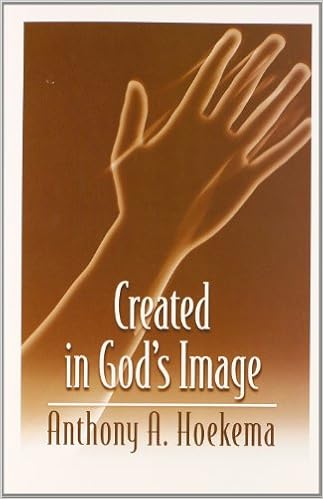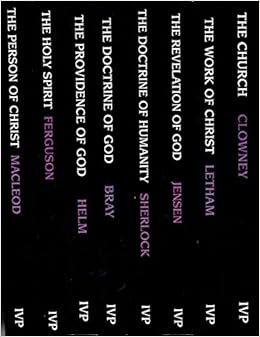After Tuesday’s post about why study systematic theology, I thought it might be helpful to explore what systematic theologies are worth using. In the last few years a number of significant systematic textbooks have been released as well as a host of stand alone volumes on different topics with in systematic theology. I can’t begin to mention them all. And once we get outside of Reformed-Evangelical circles, my knowledge becomes much more limited. So rather than attempting a survey of the field, let me mention ten systematic theology resources I come back to again and again.
In no particular order:
 1. John Calvin, Institutes of the Christian Religion (1559). Historians would argue it’s not exactly a systematic theology, but it is theology at its best. It’s the one I read first and have read most. Much more readable than you might think, and filled with beautiful passages that will inspire as well as inform.
1. John Calvin, Institutes of the Christian Religion (1559). Historians would argue it’s not exactly a systematic theology, but it is theology at its best. It’s the one I read first and have read most. Much more readable than you might think, and filled with beautiful passages that will inspire as well as inform.
2. Louis Berkhof, Systematic Theology (1938). Still hard to beat for order, precision, and (relative) brevity. Is there a better one-volume systematic theology in the Reformed tradition?
Louis Berkhof, Systematic Theology (1938). Still hard to beat for order, precision, and (relative) brevity. Is there a better one-volume systematic theology in the Reformed tradition?
3. Herman Bavinck, Reformed Dogmatics (1906-1911). What a tremendous gift it was when Bavinck’s magnum opus began to be published in English–only a little more than a decade ago. Berkhof is basically a summary of Bavinck, so if you want to go deeper and wider and fuller, you need these four volumes. Also check out Bavinck’s smaller work Our Reasonable Faith.
Herman Bavinck, Reformed Dogmatics (1906-1911). What a tremendous gift it was when Bavinck’s magnum opus began to be published in English–only a little more than a decade ago. Berkhof is basically a summary of Bavinck, so if you want to go deeper and wider and fuller, you need these four volumes. Also check out Bavinck’s smaller work Our Reasonable Faith.
4.  Francis Turretin, Institutes of Elenctic Theology (1679-1685). This was the textbook at Old Princeton until Hodge’s own Systematic Theology was released. It’s hard to overstate the influence Turretin has had on the development and transmission of Reformed theology in the English speaking world. Get these three volumes. Yes, they use the scholastic method. Yes, some of the debates will seem overly philosophical and arcane. But for comprehensiveness and careful delineation of categories, you will not find anything better.
Francis Turretin, Institutes of Elenctic Theology (1679-1685). This was the textbook at Old Princeton until Hodge’s own Systematic Theology was released. It’s hard to overstate the influence Turretin has had on the development and transmission of Reformed theology in the English speaking world. Get these three volumes. Yes, they use the scholastic method. Yes, some of the debates will seem overly philosophical and arcane. But for comprehensiveness and careful delineation of categories, you will not find anything better.
5.  Wayne Grudem, Systematic Theology (1994). An unlikely bestseller, but if you find a college student reading systematic theology for fun, he’s probably reading Grudem. As a Presbyterian I don’t agree with all of Grudem’s conclusions, but he’s hard to beat for clarity, accessibility, and readability. You may also want to use Bible Doctrine or Christian Beliefs.
Wayne Grudem, Systematic Theology (1994). An unlikely bestseller, but if you find a college student reading systematic theology for fun, he’s probably reading Grudem. As a Presbyterian I don’t agree with all of Grudem’s conclusions, but he’s hard to beat for clarity, accessibility, and readability. You may also want to use Bible Doctrine or Christian Beliefs.
6.  R.C. Sproul, Everyone’s a Theologian (2014). I’m always on the look out for introductory volumes that we can use with elders or in our leadership training course. This book fits the bill nicely. We’ve also used John Frame’s Salvation Belongs to the Lord before.
R.C. Sproul, Everyone’s a Theologian (2014). I’m always on the look out for introductory volumes that we can use with elders or in our leadership training course. This book fits the bill nicely. We’ve also used John Frame’s Salvation Belongs to the Lord before.
7. Chad Van Dixhoorn, Confessing the Faith: A Reader’s Guide to the Westminster Confession of Faith (2014). It would be a mistake to dive into systematic theology without paying attention to the great theological statements which have stood the test of time. For a lot of folks, that means the Westminster Confession of Faith, and this is the best, most use-able commentary out there. I wrote a popular-level commentary on the Heidelberg Catechism that may also interest some people.
Confessing the Faith: A Reader’s Guide to the Westminster Confession of Faith (2014). It would be a mistake to dive into systematic theology without paying attention to the great theological statements which have stood the test of time. For a lot of folks, that means the Westminster Confession of Faith, and this is the best, most use-able commentary out there. I wrote a popular-level commentary on the Heidelberg Catechism that may also interest some people.
8. Michael Horton, The Christian Faith (2011). Not as user-friendly as Grudem, but more sophisticated–theology for theologians. Horton is especially good if you want a reliable contemporary writer who is very conversant with the history of theology and with the best theologians from other traditions.
9. Anthony Hoekema, Created in God’s Image (1986), Saved by Grace (1989), The Bible and the Future (1979). I’ve always found the structure in these volumes very intuitive and the exegesis particularly careful. Excellent and easy to use in pieces if you don’t want to read the whole thing.
Anthony Hoekema, Created in God’s Image (1986), Saved by Grace (1989), The Bible and the Future (1979). I’ve always found the structure in these volumes very intuitive and the exegesis particularly careful. Excellent and easy to use in pieces if you don’t want to read the whole thing.
10.  Contours of Christian Theology (1993-2002). This series, edited by Gerald Bray, is one of the best things IVP ever published. Each volume tackles a single loci in 250-300 pages: the doctrine of God (Gerald Bray), the work of Christ (Robert Letham), the providence of God (Paul Helm), the doctrine of humanity (Charles Sherlock), the Holy Spirit (Sinclair Ferguson), the person of Christ (Donal MacLeod), the revelation of God (Peter Jensen), the church (Edmund Clowney). Every pastor should have these on his shelf. I use them often.
Contours of Christian Theology (1993-2002). This series, edited by Gerald Bray, is one of the best things IVP ever published. Each volume tackles a single loci in 250-300 pages: the doctrine of God (Gerald Bray), the work of Christ (Robert Letham), the providence of God (Paul Helm), the doctrine of humanity (Charles Sherlock), the Holy Spirit (Sinclair Ferguson), the person of Christ (Donal MacLeod), the revelation of God (Peter Jensen), the church (Edmund Clowney). Every pastor should have these on his shelf. I use them often.


















